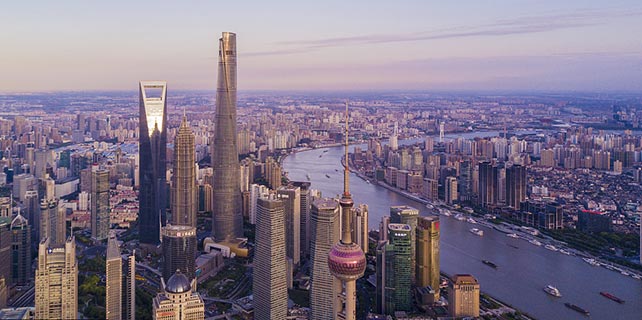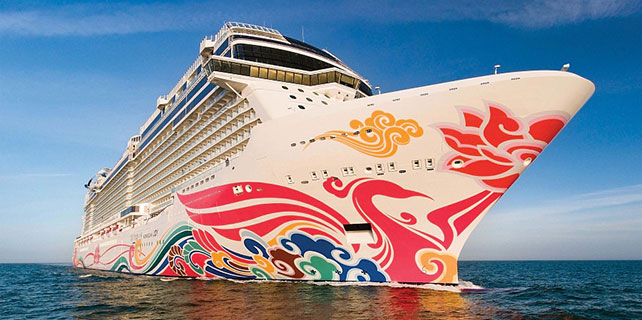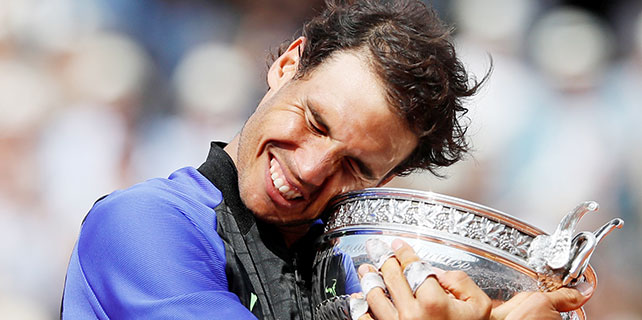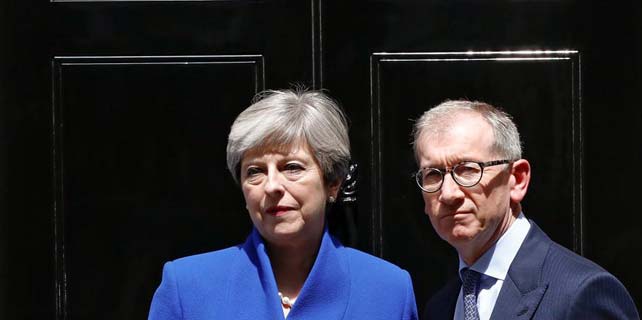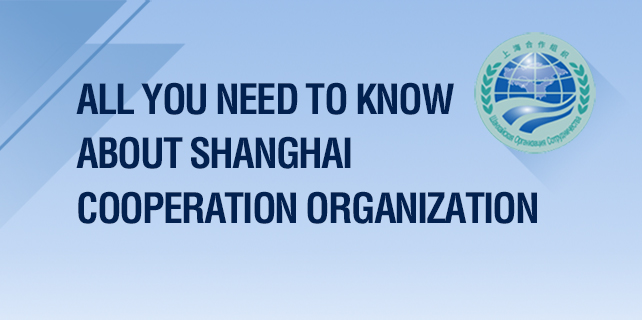May's deal with DUP helps her remain in power
British Prime Minister Theresa May, her reputation damaged by her decision to hold a general election earlier than she was compelled to in a failed attempt to win a bigger majority, has struggled to form a government with the support of a hardline Northern Irish party.
The Democratic Unionists' backing gives her a two-seat majority, letting her to cling on to power by the slimmest of margins.
On Thursday, May's Conservative Party, which had a 17-seat majority in the previous parliament, failed to win the 326 seats needed for an overall majority.
Some senior Conservatives have already expressed doubt about relying on the DUP, a party that is opposed to same-sex marriage.
A YouGov opinion poll in the Sunday Times suggests 48 percent of the British public thinks May should resign. Two of her special advisers, Nick Timothy and Fiona Hill, quit on Saturday after taking the blame for strategic errors in the lackluster campaign.
Foreign Secretary Boris Johnson is being urged to run for the prime minister's job, and many observers are predicting May could be forced out by her own party in two or three months.
May called the snap election because she wanted to be "strong and stable" as Britain began its negotiations to leave the 28-member European Union.
With Brexit talks set to begin, many commentators now want an all-party group to be formed to conduct those negotiations.
May campaigned on a "Brexit" agenda, promising to take a tough line on maintaining Britain's rights in future relations with its European neighbors. Her Brexit promises, criticized as being thin on detail, were twinned with a pledge to tighten Britain's trade relationships with non-European partners, such as China, India and the United States.
But the electorate looks to have been more interested in domestic issues, such as taxation, welfare, and pensions.
Two terrorist attacks during the campaign may also have affected the vote after May's opponents accused her of cutting the number of police officers.
Promises by the main opposition Labour Party to boost public spending, to get more tax from corporations, and re-nationalize some industries look to have resonated among many voters.
Jeremy Corbyn, the left-wing Labour leader who seemed unelectable as prime minister a year ago, delivered one of his party's best results in a general election, in terms of percentage of the total vote.
Corbyn remains in opposition, despite Labour's gains but his party may be able to count on tactical support from the Liberal Democrats, Scottish Nationalists, and others to constrain the weakened Conservative government.
All of the Liberal Democrats, most of the Labour Party, and a substantial part of the Conservative Party campaigned against withdrawing from the EU last year. The state of the Conservative Party is likely to temper May's threat of possibly overseeing a "hard Brexit".
The uncertainties linked to Britain's "hung parliament" have already prompted European officials to suggest that the start of Brexit talks be delayed.
Contact the writers at chris@mail.chinadailyuk.com








